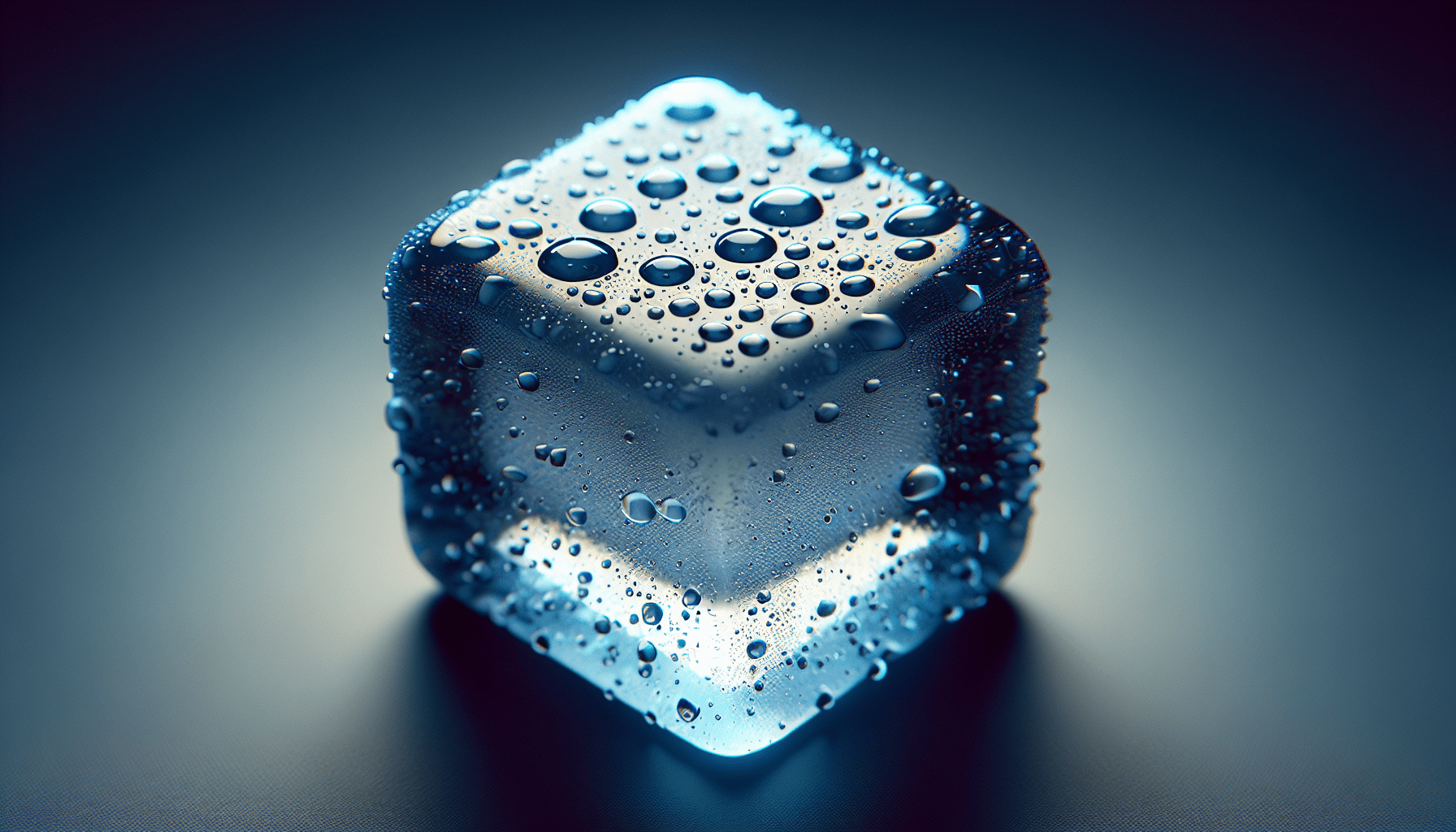Have you ever wondered about the downsides of using ice cubes on your face? While it may feel refreshing and invigorating, there are potential disadvantages to be aware of. From the possibility of skin irritation to sensitivity issues, this article explores the potential downsides of using ice cubes on your face. So, before you reach for that chilly cube, let’s take a closer look at the potential drawbacks lurking beneath their icy exterior.
Skin Irritation
Rubbing an ice cube on your face can potentially cause skin irritation. The extreme cold temperature can lead to redness and irritation, particularly for those with sensitive skin. This is because the cold can constrict blood vessels and limit blood flow to the skin, which may result in itching and inflammation. Additionally, if you already have existing skin conditions, such as eczema or psoriasis, the ice cube may aggravate these conditions and worsen your symptoms.
Dryness
One of the disadvantages of rubbing an ice cube on your face is that it can strip away natural oils from your skin. These natural oils help to keep your skin hydrated and lubricated, so when they are removed, your skin can become dry and flaky. This can result in a feeling of tightness and discomfort, making your skin appear dull and lackluster. If you already have dry skin, using an ice cube may exacerbate the dryness and lead to further irritation.
Hypersensitivity
Ice cubes can be a trigger for sensitive skin. When applying the ice cube directly to your face, it can potentially cause hypersensitivity reactions, including rashes and allergic reactions. This is particularly true for individuals with conditions such as rosacea or contact dermatitis. Moreover, using ice cubes on your face can actually increase the sensitivity of your skin to other skincare products, making it more prone to adverse reactions.
Pore Constriction
The cold temperature of an ice cube can cause temporary pore constriction. This means that the pores on your skin shrink in response to the cold, potentially trapping dirt, oil, and other impurities within them. This, in turn, can contribute to breakouts and acne formation. If you are already dealing with clogged pores, using an ice cube may not be the most effective method to address this concern.
Vasoconstriction
Another disadvantage of using ice cubes on your face is vasoconstriction. The cold temperature causes blood vessels to constrict, resulting in decreased blood flow to the skin. This decreased blood flow can lead to a dull and lifeless complexion as the skin is not receiving an adequate supply of oxygen and nutrients. Over time, this can impact the overall health and appearance of your skin.
Potential Damage
Abrupt temperature changes, such as applying an ice cube to your face, can potentially cause damage to your skin. The extreme cold can lead to the development of broken capillaries or exacerbate existing ones. Additionally, if you have a condition like rosacea, the cold temperature can trigger flare-ups and worsen the symptoms. The delicate tissues on your face can also be damaged by the repeated use of ice cubes, leading to long-term consequences.
Not Suitable for Certain Conditions
While using ice cubes on your face may seem like a refreshing idea, it is important to note that it is not suitable for everyone. Individuals with Raynaud’s disease, a condition that causes the arteries to narrow, should avoid using ice cubes on their face as it can worsen their symptoms. Furthermore, if you have cold-induced hives, applying ice cubes can exacerbate the condition and cause discomfort. Lastly, if you have sensitive teeth or sinusitis, using ice cubes on the face can be uncomfortable and trigger additional symptoms.
Ineffectiveness for Certain Concerns
Although rubbing ice cubes on your face may provide a temporary cooling sensation, it may not effectively address certain skin concerns. For example, if you are looking to reduce acne or blemishes, the limited efficacy of ice cubes in this regard may not produce the desired results. Additionally, if you are seeking long-lasting hydration, using ice cubes may not be the most effective method as they primarily provide a temporary cooling effect. If you have complex skin issues, it is advisable to explore other treatment options that are better suited to addressing your specific concerns.
Convenience and Mess
Using ice cubes on your face can be inconvenient and messy. The melting ice can drip, requiring you to have a towel or a bowl to catch the water. This can make the process cumbersome, especially if you are trying to incorporate it into your daily skincare routine. Moreover, it may not be the most convenient option for on-the-go skincare, making it difficult to incorporate into a busy lifestyle.
Alternative Treatments
Considering the disadvantages associated with rubbing ice cubes on your face, it is worth exploring alternative skincare treatments. There are many more effective and targeted skincare products and techniques available that can offer better results without the disadvantages of using ice cubes. For example, using hydrating serums, moisturizers, and face masks tailored to your specific skin concerns can provide more nourishment and hydration. Consulting with a dermatologist or skincare professional can help you identify the most suitable treatment options for your skin and ensure better overall outcomes.
In conclusion, while applying ice cubes to your face may initially seem like a refreshing and easy skincare hack, there are several disadvantages to consider. Skin irritation, dryness, hypersensitivity, pore constriction, vasoconstriction, potential skin damage, and the inconvenience of using ice cubes are all valid concerns. Furthermore, ice cubes may not effectively address certain skin concerns and may not be suitable for individuals with specific conditions. Exploring alternative skincare treatments that are more effective, convenient, and tailored to your specific needs is recommended to ensure optimal skincare results.
